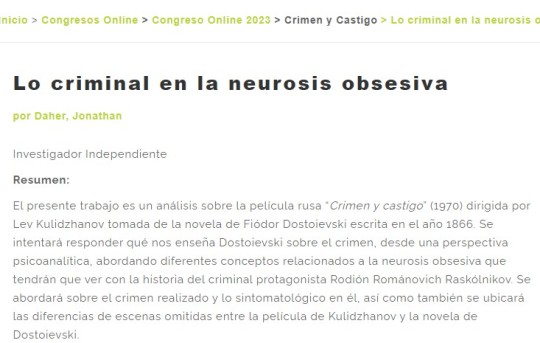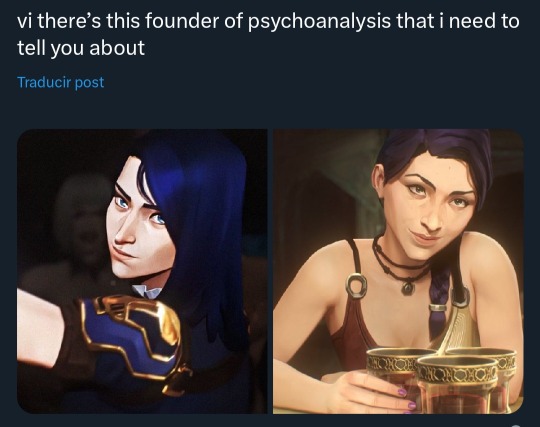#psychoanalytic
Explore tagged Tumblr posts
Text

The Colonization of Psychic Space A Psychoanalytic Social Theory of Oppression Kelly Oliver
#cover art#art#book cover#book#writings#kelly oliver#psychic#psychoanalytic#social theory#oppression#u
80 notes
·
View notes
Text

Now the child holds the wisdom. There are no demons to tempt her, only friends who play. An angel holds her sigil, his wings black as the sun. A city burns in the distance.
Ave Puella Aeterna, 2025, etching on paper.
#eternal child#puella aeterna#puer aeternus#mystical art#visionary art#etching#bosch#printmaking#christian art#sacred feminine#fine art#symbolism#psychoanalytic#art#renaissance#sacred text#gnostic art#gnosticism#artists on tumblr
6 notes
·
View notes
Text
Two book pairings I have enjoyed recently:
Britney Spears, The Woman in Me, followed by the chapter on Hysterical (Histrionic) Psychologies in Nancy McWilliams's classic Psychoanalytic Diagnosis: Understanding Personality Structure in the Clinical Process, 2nd edition.
Two wildly different takes on consent, both life-changing: Betty Martin will teach you how to feel consent in your body with The Art of Receiving and Giving: The Wheel of Consent and Avgi Saketopoulou will fuck up all that you didn't want to know about consent with Sexuality Beyond Consent: Risk, Race, Traumatophilia.
I will be quote-blogging these for my own pleasure, edification and future reference, and maybe yours as well!
For my thoughts on these and other subjects, look at the #mywriting tag.
#britney spears#the woman in me#celebrity memoir#nancy mcwilliams#mommy#psychoanalytic#betty martin#wheel of consent#affirmative consent#avgi saketopoulou#sexuality beyond consent#currently reading#my writing
31 notes
·
View notes
Text

S. Maldaikis
My uncle is going places with this art. even tho he doesn’t use tumblr to share it , i’ll be his echo
Thoughts?
3 notes
·
View notes
Text
Stranger from hell analysis
I have rewatched both Strangers from hell and Hannibal NBC and the similarity in characterization is uncanny. But first, I just want to explain that although it seems the title "Strangers from hell" is the widely accepted title in English, "Hell is other people" is so much more poetical don't you think?
Throughout the series, it has been thoroughly discussed that the people that surround us are the ones that make our lives for better or worse and that is what we see with Yoon Jongwoo. From his poor mother, his brother, the residence, and his job. But what really stuck with me is that it is not the place that is making Yoon Jongwoo's life miserable. It's the people around him. He does not consider her mother and his brother and maybe his girlfriend the burden or his final straw to insanity, but the people in his residence and his work. This may seem like a given, but I just like this when thinking about this series.
--- The next will contain spoilers. Be warned---
Now the similarities between Hannibal NBC and Strangers from Hell, is, of course, the 2 main characters.
From the psychoanalytic theory where childhood is very important, both our sugar killer's childhood is not really put importance and we are only given small amounts of information regarding this regard. This information is enough. In psychology, mothers are very important figures in our life as a baby once. This mother figure is what makes us who we are today (well as I have said, mostly on what the psychoanalytic theory suggests). But from the Hannibal nbc and strangers from hell series, both Hannibal Lecter and Seo Moonjo are orphaned and have no clear distinct features of a mother figure to learn the ways of society or as Alfred Adler's theory teaches them social interest. However, since they live as the adults that we see they are, we know that someone took care of them.
My question is, in the psychoanalytic view, does their lack of parental love, neglect, and obvious lack of social interest, the reason why these individuals are who they are as adults? In a humanistic-existential theory most specifically Erich Fromm's theory, both show necrophilia, or the love of death, and malignant narcissism, or the extreme obsession with oneself, and this characterization, if spoken to, will make Hannibal and Seo Moonjo itch. Additionally, they are perfectionist and thinks that everyone is beneath them. Overall, these two individuals are toxic and beyond repair.
2. Hannibal and Moonjo are seen as smart and educated. We know that they are in the medical field, and we understand that they both are good at doing it. Their jobs help them with their murder hobbies, and their medical knowledge helps them with their signature killing style.
3. Gift-giving! In terms of love languages, it is seen that both Hannibal and Moonjo-despite being obsessive lovers- share their own form of love in acts of service. With Hannibal with his livers and sausages (if you know what I mean), it is understandable that he feeds it to people in his small social circle-but I see that as satirical where their high social standing makes them ignorant even to the littlest things like the food that they are eating. But with Will... Hannibal feeds Will with the intention of acceptance and affirmation that what Hannibal eats tastes good, and thus, Will should have them too. It is twisted, but who are we to judge his form of love?
We can also see this with Moonjo's bracelet full of teeth. Like Hannibal who has a fascination with human meat, Moonjo has a fascination with teeth. And like Hannibal, Moonjo shares them with Yoon Jongwoo because if he wears the bracelet, then maybe, maybe Jongwoo accepts Moonjo's love. Oh, I almost forgot the human meat that he feeds to everyone. But what makes it special is Moonjo's action while he feeds them to Jongwoo (I am being delusional but aren't we all?) where it looks like he feeds them to jongwoo so that jongwoo can understand moonjo better.
4. Throughout the end of the series, we can notice a similarity in the story resolution and how it shapes our two main characters.
a.) First with Yoon Jongwoo. At first, he has this life that in a sense, I still consider normal since it does not affect his daily life. He has his own problem with his poor mother, and his brother which seems to be an equally financial liability that makes him go to the city to finally be alone and work. It is not perfect, but it is his life that he just lives through as part of his lifetime. Toward the climax, with all the evils he has been through, the psychological abuse that not a normal person can handle is the last straw for his patience. I personally believe that a normal individual is judged by his patience in society, and if this patience does not exist, is what makes things problematic. Because of this, as we follow through to the end, he snaps and kills everyone including the very man that is obsessed with him- Seo Moonjo.
What I like about this end is that with all of the things he has gone through, we don't necessarily know how he would live his life after. We know that the current end tells us that what he did to Moonjo will be considered as self-defense and he gets to live in society to act like a normal human being. But can he? And, what then? We do not know.
b.) Now with Will Graham. An individual who has many mental illnesses that makes him think so differently than an average person, which in a sense, might makes his life a little bit harder than most considering that he does not follow the norms of the society, but like Yoon Jongwoo, he lives with it. Following through the 2nd season regarding his arrests, we noticed a turn of personality, specifically, hostility towards Hannibal. Will's unlawful arrest draws his last patience and at last! His becoming. I am curious to hear more of Hannibal's thoughts about this considering that this is part of his design, and yes, he cannot control what happens next, but what does Hannibal really think of this? Does he love it? Was he surprised? Aroused? Anyways, this new Will that we will eventually see in season 3 was very romantic unlike Strangers from Hell, and honestly, I am here for it!
If I have watched this when I was younger, I think I would have hated the ending. But since I watched it at the prime age of 18 (still too young I guess?), I LOVE LOVE LOVE it so much. The love that should not exist in the first place, a love that is so forbidden that you just have to choose which one, and the becoming of what you two truly want is my peak romance. Nobody writes romance like this anymore I guess...
Anyways! I just got really excited with this since I think I have found my favorite genre of literature and it's just murder bl haha.
#strangers from hell#yoon jongwoo#seo moonjo#hannibal#hannibal lecter#will graham#psychology#psychoanalytic#psychoanalysis
38 notes
·
View notes
Text

Tuts
Noch
Weh?
#psychodynamic therapy#psychoanalytic#psychoanalysis#psychology#psychologie#self healing#mental illness#mental health#selbsthilfe#selbstheilung
7 notes
·
View notes
Text


Lmao I’m watching a court show episode where the gf is suing the ex bf for money she gave him for “legitimate” therapy and he spent it on spankotherapy. The above is from me googling it. The “dr” talks so much like a con man and the defendant is like the dr could see past his anger and his upset… duh that’s what you went for right?! The dr is not a real doctor AT ALL.
I get that there are some therapies that aren’t the norm. Like I actually am interested in reality based type therapies where things aren’t sugar coated and would be questionable to many… I can see how spankotherapy has notes of psychoanalytic or Freudian system. We know that the physical pain (like from spanking) causes hormones like endorphins to be released— so does sex and elated emotions. It also disrupts the mental turmoil you’re experiencing which allows you to refocus on other things— like positives. It’s not hard to put two and two together.
BUT BUT BUT omg DO NOT sign up for stuff that’s not with a legitimate psychologist or psychiatrist because if something goes wrong you’ll have no recourse against a fake unlicensed doctor. “But the good reviews and testimonials..” yeah it’s not hard to fake those. People who are down are easy pickings for charlatans that’s why they target them, so don’t let yourself be conned.
6 notes
·
View notes
Text
I love studying psych but some days I just wanna believe humanity can be good :(
3 notes
·
View notes
Text

Significance of Psychoanalytic approach pertaining to causation of crime: An analysis
For further information, refer to this Article By Prof.(Dr.) Priya Sepaha
0 notes
Text
youtube
#psychoanalysis#psychoanalyst#psychoanalytic#narcissist#narcissism#narcawareness#narcissistic#mentahealthawareness#psychology#Youtube
0 notes
Text
The Arts and Art Therapy
Images and ideas that worry and harm us are all around us and in our inner world. With these images and ideas, individuals can communicate emotionally with each other, and our consciousness can work with the unconscious; more works of art are produced to communicate to people in the language of images the pains and delights of spiritual life, and more of these works are produced as they become…

View On WordPress
#art#artmovements#arttherapy#dadaism#gombrich#health#jungian#modernart#psychoanalytic#psychology#surrealism#therapy
0 notes
Text
“Books don’t reveal things about what their authors really think.”
*Literature about to introduce the concept of psychoanalysis-
#lol minds would be blown#I’m not say it doesn’t have its flaws but you actually can tell a lot about a write from their work#I mean it came out of their brain it’s going to have an impact of them on it#on the bright side#this is getting me back into literary analysis#literary analysis#literature#psychoanalytic
1 note
·
View note
Text
Congreso de Psicología 2023 ETICA Y CINE
Aprobaron mi escrito para ser publicado en el Congreso de Psicología 2023 este año del Dr. Fariña sobre ETICA Y CINE.
Cuando comience el congreso lo expondré al publico por medio de Zoom. Más adelante compartiré el link para que puedan escucharme!
Estoy muy contento y los invito a leer mi trabajo tomado de mi tesis sobre la Neurosis Obsesiva en relación con la obra de Dostoyevsky "Crimen y Castigo" y a la película rusa “Prestuplenie i Nakazanie” (1970) dirigida por Lev Kulidzhanov.
Les dejo el Link: https://www.eticaycine.org/Crimen-y-Castigo-3769

Gracias!!!!!!!!!!!!
#dostoyevski#fyodor dostoevsky#literature#psychoanalysis#psychology#psicología#sigmund freud#winnicott#authors#psychoanalyzing#psychoanalytic#psicoanalista#psicoanalisis#psicanalise#psicologia#psicoanálisis#psicoterapia#psicologo#cinema#cinemetography#film#cinephile
1 note
·
View note
Text
I’m working on being so deep rooted within myself that no one’s presence or departure can disrupt my peace
0 notes
Text

Hear me out ...
2K notes
·
View notes
Text
On Therapy and Science
Therapy at its best is a purely human endeavor, and not a science in any objective or consistently predictive sense.
Viewing the therapeutic task through a scientifically descriptive lens can be helpful, but scientific prescriptions for the perennial endeavor of being with one another in a profound, intimate, and exemplary sense have proved to be less than consistent or helpful.
So much of what we lust after in modern psychology still wreaks of “physics envy,” and our desire for a stable casting of the human lot in physically reducible terms. This has proved elusive for good reason, namely that the gestalt of being isn’t reducible to a purely predictable physical model.
The variables of the therapeutic relationship are far too many to meaningfully isolate and study in controlled ways, let alone in consideration of their intersections with the idiosyncrasies of the individual lives and experiences of therapist and patient.
The end result of all of this ado has been the suffering of our training models and modes of practice, which really can’t be manual-ized, or forced into short term treatment plans acceptable to the for-profit insurance outfits that practically define health and its attainment for us.
~Sunyananda

#therapy#counseling#psychology#psychotherapy#psychoanalysis#psychoanalytic#mental health#therapist#counselor#analyst#science#scientific#scientism
1 note
·
View note